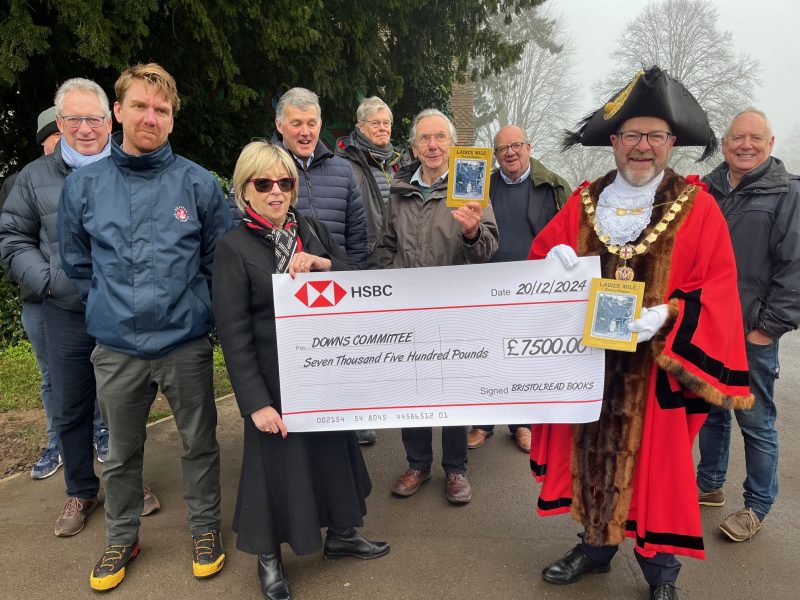A book that scandalised Bristol and was banned from the city’s libraries has made more than £7,000 for the city.
Ladies Mile is the title of the memoir of the late Victoria Hughes, who was toilet attendant on Clifton and Durdham Downs for more than 30 years until the 1960s.
“She kept detailed notes of the women, many of whom were ‘sex workers’ and used the toilets and cried on her shoulder,” said Kerris Harrop, who has privately republished the book.
“It was regarded by the city’s libraries as ‘too shocking’ to put on their shelves.”
By Christmas she had sold 700 copies and last month she presented the proceeds to Bristol Lord Mayor, Councillor Andrew Varney, chair of the Downs Committee. The money is for the restoration of the toilets where Victoria Hughes worked.
Kerris said: “As long as people order the book I will supply it and raise more money to improve our pretty Victorian loos on the Downs.
“The book is an amazing story of compassion and drama amongst the sex workers on the Downs back in the day. Every penny goes to the restoration of the Victorian Temple of Tinkles.”
Interest in the book has been widespread, with buyers from Wales, Scotland and other parts of England as well as from Bristol and the surrounding area.
It took Kerris 18 months to get permission to reprint the book. “Firstly, I had to find out if Victoria had left the copyright to anyone. It meant that I had to check with the relatives of Victoria and the relatives of her editor, the late David Foot, a journalist and author,” she said.
When she was satisfied that no one had the copyright, Kerris had to approach the Intellectual Property Office for a licence to reprint the book. She then had to type the entire text ready for the printer.
Victoria Hughes died aged 80 in 1978 and is honoured by a blue plaque above the toilet entrance which says she “befriended and cared for prostitutes when she worked here”.
Ladies Mile is the name of one of the roads crossing the Downs which in the 1930s was used by local society ladies to ride their horses.


